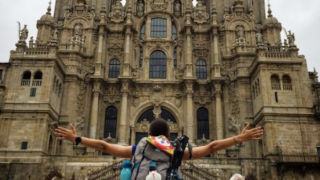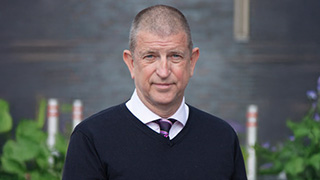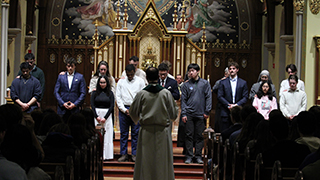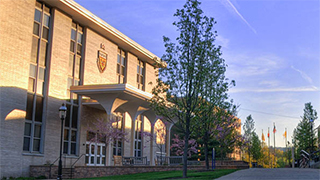El Camino de Santiago: A Medieval Pilgrimage, Past and Present
Monday, October 4, 2021

Join Teams meeting here
About the event:
A network of pilgrimage routes joined medieval Europe to the shrine of the Apostle
James at Santiago de Compostela in northwestern Spain. The routes were immensely popular
in the medieval period and preserve many monuments of the time. While the meaning
of the routes has changed with the ages and modern travelers follow the routes for
many different reasons, the Camino de Santiago remains very popular. What accounts
for this perennial interest? What are the origins of the historical Camino and its
modern form? How do the medieval and modern experiences compare or contrast? These
and other questions will be addressed in this illustrated lecture.
For more information, please contact Gloria Aroneo, MBA, at [email protected] or (973) 275-2808.
About the speaker:
Richard Gyug, Ph.D., was named Professor Emeritus at Fordham University at the end
of the spring 2018 semester, after more than two decades in which he was an inspiring
presence at Fordham, in the Honors Program, his home department of History, and Medieval
Studies. An excellent researcher, teacher, and administrator, Dr. Gyug regularly led
study abroad programs and has supervised dozens of graduate-level theses and dissertations.
His research focuses on religious culture in the Western Mediterranean and on Latin
manuscripts written in the Beneventan script. For years, his expertise as editor of
medieval texts received acknowledgment from the Research Council of Canada in the
form of generous funding for the Monumenta Liturgica Beneventana, a long-standing
scholarly project based at his alma mater, the University of Toronto, and now represented
by him as the Principal Investigator.
Categories: Arts and Culture, Education, Faith and Service






